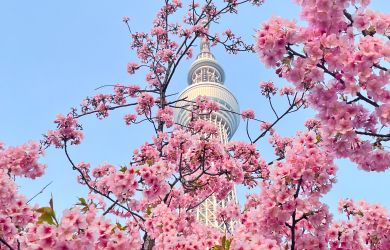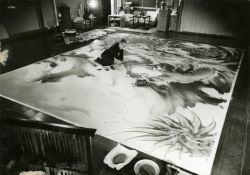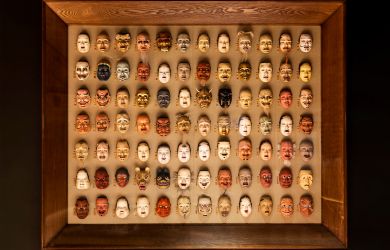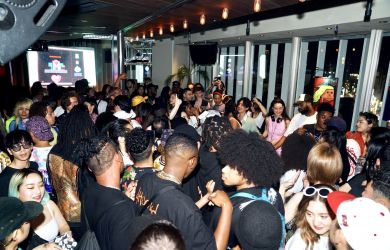
Originally published on metropolis.co.jp on May 2009
 While Japan is still the second largest economy in the world, its organic food market ranks an embarrassing ninth. The situation is even worse when it comes to per capita consumption, where Japan places 17th. One food importer, however, is trying to spur an organic revolution in a notoriously trend-conscious country.
While Japan is still the second largest economy in the world, its organic food market ranks an embarrassing ninth. The situation is even worse when it comes to per capita consumption, where Japan places 17th. One food importer, however, is trying to spur an organic revolution in a notoriously trend-conscious country.
Duco Delgorge, president of MIE Project, aims to make sustainability and social responsibility the rule rather than the exception. MIE (which stands for “Meaning, Inspiration and Effectiveness”) imports and sells high-quality organic, natural and fair trade products, including Delouis mustard, Tartex pâté, Alter Eco chocolate and Michel Montignac confiture. These goods are available in high-end supermarkets like Kinokuniya, Seijo Ishii, Queen’s Isetan and Dean & Deluca, as well as Michelin-starred restaurants and expat grocery stores like National Azabu and Nissin.
Born in Prague (where his Dutch father was working as a diplomat), Delgorge lived in New York, Mumbai and Sydney before returning to the Netherlands, where he completed a traineeship with Philips. In the ’80s, he joined Unilever in England and was posted to Japan from 1988 until 1992 as marketing manager. Later on, he worked for Puratos Japan as general manager before leaving in January 2008 to concentrate on MIE Project.
“I always knew that one day I would have my own business,. I was waiting for the right opportunity where I could do work that is enjoyable, as well as contributing to society and ecology,” he says. “Finding suppliers was the first challenge, and then convincing them that they should work with us, an unknown company.”
Delgorge says the organic food market in Japan is seriously lagging behind the rest of the developed world. “I’d say it’s perhaps 10-20 years behind Europe and the US. One reason is that there is so little grown organic locally: organic agriculture in Japan accounts for only 0.6 percent of the total, whereas in Europe it is close to 5 percent, reaching as high as about 15 percent in Austria.”
 Educating Japanese shoppers is an important task for Delgorge and his team. “[Consumers] are concerned about price, but you have to remember these are top-quality organic products which are already expensive in Europe. However, I am happy to hear from many customers who say they feel our products are reasonably priced. Package size may also be another concern. Once we get started, we can ask suppliers to make smaller packs. For example, we have recently introduced Delouis mustards in 100g jars, in addition to the already popular 200g jars. But such adaptations usually come after some experience in the market rather than from the outset.”
Educating Japanese shoppers is an important task for Delgorge and his team. “[Consumers] are concerned about price, but you have to remember these are top-quality organic products which are already expensive in Europe. However, I am happy to hear from many customers who say they feel our products are reasonably priced. Package size may also be another concern. Once we get started, we can ask suppliers to make smaller packs. For example, we have recently introduced Delouis mustards in 100g jars, in addition to the already popular 200g jars. But such adaptations usually come after some experience in the market rather than from the outset.”
One of the problems organics face is a negative image. “They think it doesn’t taste good. We want to change that concept by first of all selling in places that are focused primarily on taste. Then we’ll expand.” Apart from the Kanto region, MIE sells products in Osaka, Kobe, Nagoya and a few regional areas.
Delgorge and his team (five in all) thrive in a multitasking environment. “In the beginning, I came to the office at about 3 in the morning, or even earlier. Now I start at a more civilized time, at perhaps 5 or 6am,” he says. “During the day, I try to get out into the market and visit customers. My home is just 5 minutes’ walk from the office, so I do escape to get back to the family, take the kids to school in the mornings, and spend a little time with them in the evenings and on weekends.”
Naturally, he eats a lot of organic food. “My wife has always recognized its benefits. But I am not a health nut. I believe that things should be done in moderation, be well-balanced, and come naturally.”







